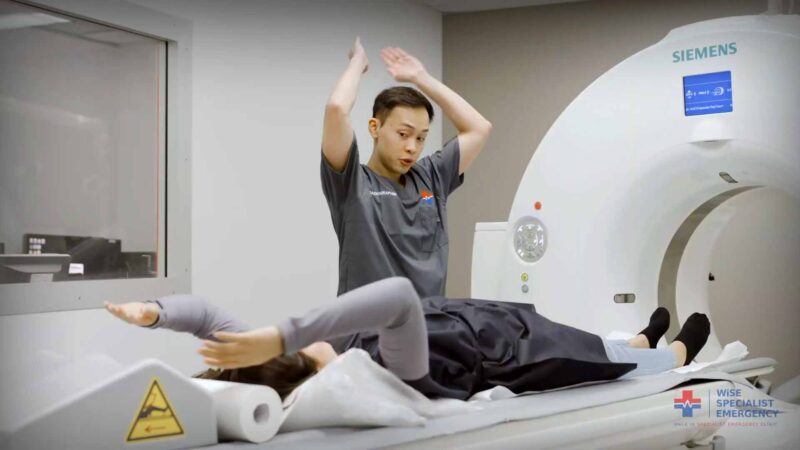CLINICAL RESEARCH INTEGRATES WITH GP AND PHARMACIST WORKFLOWS TO SUPPLEMENT PRACTICE REVENUE Primary health introductions to clinical trials leverages community trust in HCPs
With Charlotte Bradshaw,
CEO and Founder Evrima Technologies
SEGMENT
Filmed in Sydney | January 2025
Clinical trials are crucial to the development of evidence-based preventative medicines. In addition, participation in clinical trials can also provide patients with opportunities to access new treatments.
“Clinical trials are at the heart of medical advances which look into new ways to treat, prevent, or detect disease. Volunteers often do so to help contribute to advancing scientific research, knowing that they are participating in the hope of helping future generations,” said Charlotte Bradshaw, CEO and Founder to Evrima Technologies.
Ms Bradshaw spoke to Australian Health Journal about Evrima’s mission. As an Australian-based digital health company bringing trials to patients, GPs and pharmacists, world-class researchers are able to connect to the wider community through primary health care.
There are hundreds of clinical trials happening around the country and they can take place in hospitals, universities, private clinics and dedicated medical research institutes, yet the trusted role of a GP and pharmacists has opportunity to connect the stakeholder groups.
Research reveals that in Australia, 79% of people would consider being involved in a clinical trial, and 69% would be open to hearing about clinical trials from their GP or Health Care Practitioner. However, barriers such as time constraints, workforce shortages and lack of knowledge about the trials have been identified as barriers to GP referrals.
Each year, clinical trials are conducted to investigate treatment strategies (75%), disease prevention (15%), drugs and medicines (45%), and devices, lifestyles, and behaviours.
In Australia, trials that attract higher participation often centre around cancer and cardiovascular disease. Health conditions such as mental health, neurological and musculoskeletal trials, as well as those dealing with everyday issues including asthma and hypertension, often experience lower rates of participation.
With around 80% of clinical trials being delayed due to recruitment issues, Ms Bradshaw says that new referral platforms such as Evrima’s Evripath can simplify the process for practitioners and patients.
“We understand the daily challenges faced by GPs, but also appreciate that GPs are the gatekeepers to patient participation in clinical trials that are working towards better community outcomes,” said Ms Bradshaw.
Note: Research noted above is cited in the segment
You Might also like
-
Indigenous physio leadership
On the eve of NAIDOC week 2023, Australian Health Journal met with Scott Willis, the National President of the Australian Physiotherapy Association, a proud Palawa man and the first Indigenous President of the Australian health peak body.
-
Global GP Conference comes to Australia
Over 3000 delegates from around the World will gather at the 50th celebration of WONCA to reconnect and revive General Practice, sharing knowledge and learnings on access, equity, funding, and multidisciplinary care teams. This includes networking with Australian and overseas GPs and in particular learning about primary care practices in other countries.
Australian Health Journal met with Dr Nicole Higgins, President of RACGP in transit at Brisbane Airport recently and she spoke about the $6 Billion allocated in the Federal Budget in May as a significant achievement for General Practice investment. She also emphasised this announcement reinforced GPs should be at the centre of multidisciplinary care teams to ensure continuity of care and better health outcomes.
-
Specialist emergency care clinics in rollout
Unlike Emergency Departments that operate within public hospitals and some private hospitals, a Walk-in Specialist Emergency Clinic is located in the community and designed to provide comprehensive, coordinated acute care – from initial consultation and diagnostic services, to treatment and specialist referral if required – without the patient having to visit a hospital.
Australian Health Journal spoke to the visionary, founder and CEO behind this WiSE Specialist Emergency clinic, Dr Pankaj Arora.



